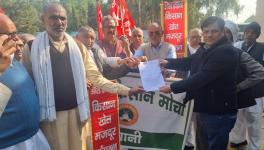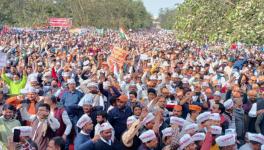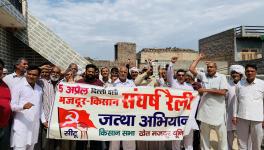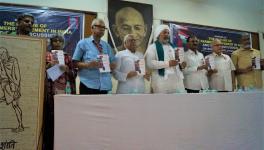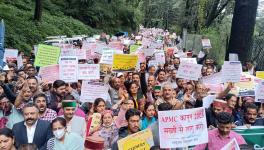Farmers’ Protest: Unimpressed Farmers Call PM Modi’s Speech ‘Misleading’, ‘Bundle of Lies’
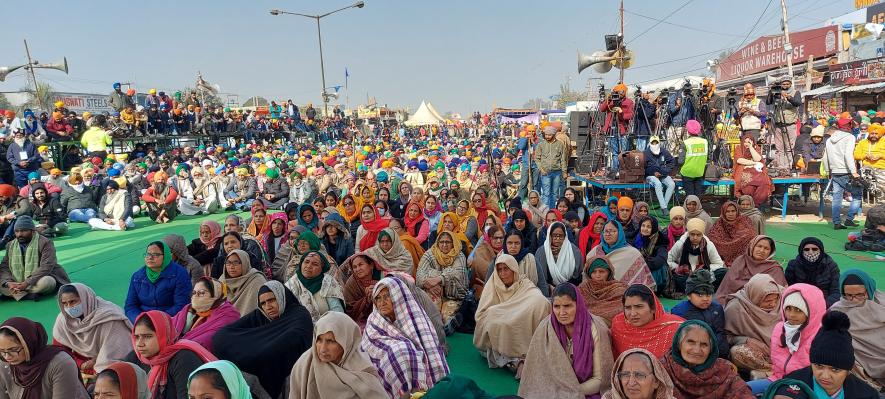
New Delhi: Prime Minister Narendra Modi’s claim of implementing recommendations of the Swaminathan Commission on the minimum support price (MSP) for agricultural produces has failed to impress the protesting farmers who described it as “disappointing, misleading and a bundle of lies”.
As per the farmers, they are forced to take their own life because they are not getting the remunerative price of their produce.
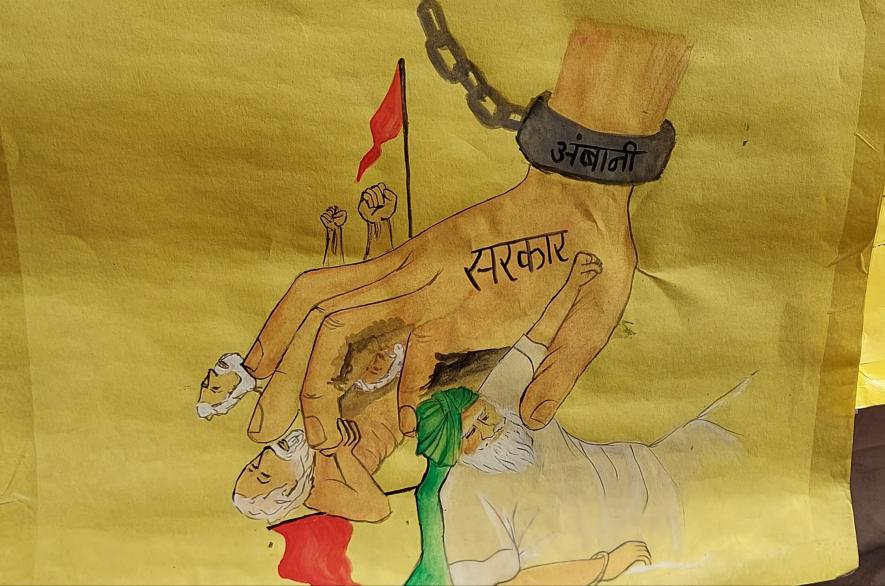
Addressing peasants at the virtual Kisan Mahasammelan, organised at Bareli town in Madhya Pradesh’s Raisen district on December 18 amid farmer protests in Delhi, PM Modi defended the new farm laws, saying accusations such as the new laws will lead to the scrapping off of the minimum support price (MSP) for crops were blatant lies.
He also said his government has implemented the Swaminathan commission report and gave MSP of 1.5 times the cost of production.
“Why would we implement Swaminathan Commission recommendations if we wanted to remove the MSP? Our government is serious about MSP and that’s why we declare it before sowing season every year. This makes it easy for farmers to make calculations,” he told the gathering, stressing that the MSP would not be ended and that his government would continue to give it as earlier.
‘SURPRISING, DISAPPOINTING, A BUNDLE OF LIES’
However, the PM’s speech did not find many takers among farmers. Responding to the speech, Madhya Pradesh-based farmers’ leader Shiv Kumar Sharma, alias Kakaji, said the PM’s address was “surprising” as well as “disappointing” for him.
“He (PM Modi) said his government has implemented Swaminathan Commission’s recommendations, which seeks to fix MSPs for farm produce based on C2+50% formula. On February 21, 2015, in response to a PIL (public interest litigation) filed by us (Consortium of Indian Farmers Association), the Centre had told the Supreme Court that it would not be able to enhance the MSP for agricultural produce to be 50% more than the input cost. When his government has already filed such an affidavit in the apex court, then on what basis is the PM claiming that he has implemented the commission’s recommendations?” he questioned.
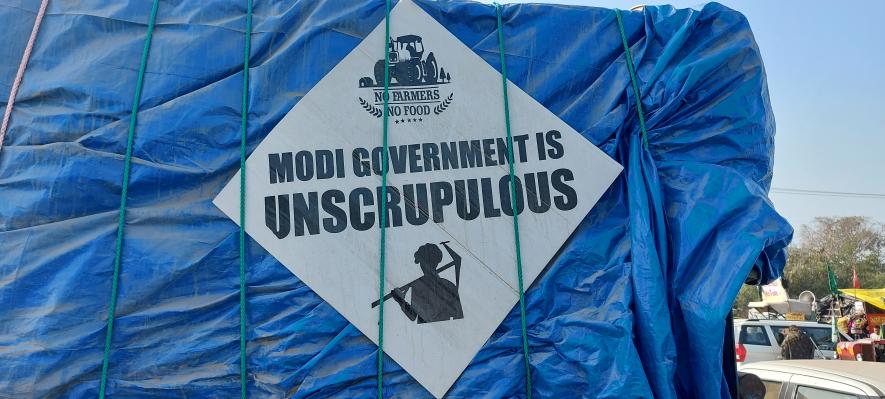
Also read: Farmers’ Protest: No, Punjab Farmers Aren’t Rich; Over 40% in a Debt Trap
C2+50% is the total cultivation costs or input cost (imputed costs of capital and family labour, interest on the value of owned capital assets, rent paid for leased-in land and rent on the land) and 50% of the total input cost.
Talking about the PM’s reference to the three agricultural laws as “extremely beneficial” for the farmers and very important for the “progress” of agriculture, Kakaji said at least the data does not suggest so.
FARMERS NOT GETTING MSP
“According to E-Anugya, a website of the Madhya Pradesh government, over 40 mandis in the state have reported zero business and the rest have recorded a sharp decline of around 60% between June and October 2020 (when the three farm legislations were brought through ordinances),” he pointed out.
He said the MSP of bajra (pearl millet) is Rs 2,100 per quintal, but it is being purchased from farmers at the rate of Rs 1,000 per quintal. Similarly, mung (green gram) is being procured at Rs 3,500 against the MSP of Rs 7,500 and maize at Rs 600-1,000 against Rs 1,850.
“What is the benefit of announcing MSPs when there is no procurement on those rates? That’s why we are demanding that the government brings it under ambit of the law so that it can be guaranteed,” he added.
He also said that the prime minister should stay away from making hollow claims so that he does not lose people’s trust.
“What would the farmers, who have sold their agricultural products at 50% less than the MSP, will think about him. Farmers in Bareli, where he was speaking, have been waiting for payments of gram they had sold two years ago. The is the place where farmers were shot dead,” he pointed out.
“How is he saying that his government has doubled peasants’ income?” he asked, adding that “even Niti Ayog, which is chaired by the PM himself, says that there is a decline of 25-30% in farmers’ income over the past few years.”
Also see: Farmers Have Not Forgotten Govt.'s Betrayals of Past Six Years
“Small and marginal farmers in Bihar, where APMC (Agricultural Produce Market Committee) was abolished in 2006, have left farming and are forced to work in agricultural fields in other states. Those who are still engaged in farming are not even getting 40% of the MSP. So, this kind of speeches won’t work and the government must think about farmers seriously,” he concluded.
All India Kisan Sabha (AIKS) leader Dharampal Singh said the entire speech of the prime minister was “misleading” and mere “rhetoric”.
“There is no substance in PM Modi’s speech. It was misleading and based on lies. It was nothing more than rhetoric. The central government announces MSP for 23 crops every year. But only two crops, wheat and paddy, are sold on it and that, too, in Punjab and Haryana and partially in Uttar Pradesh,” he said.
SWAMINATHAN COMMITTEE RECOMMENDATION NOT IMPLEMENTED
He also pointed out that Swaminathan commission report states that MSP should be at least 50% more than the total cost of production (C2+50%), but the government is using A2+FL (costs incurred by the farmer and the value of family labour) formula, which can never ease farmers’ distress.
Not only that, M S Swaminathan in his report clearly describes how most of the states are not covering ‘C2’ in entirety while deciding the MSP. “What is the the advantage of MSP when there is no procurement on it?” he questioned.
He confirmed that maize was sold at the rate between Rs 700-1,000 in Punjab against MSP of Rs 1,850. The MSP for cotton was Rs 5,825 per quintal, but it is sold between Rs 4,600-4,800 per quintal. Farmers are facing loss of Rs 1,000-1,100 per quintal, he added.
When the government is unable to ensure that agricultural commodities are sold at MSPs, then how can farmers trust the prime minister, who is a habitual offender of spreading lies. The three laws the government has brought is a license to loot farmers, he told NewsClick.
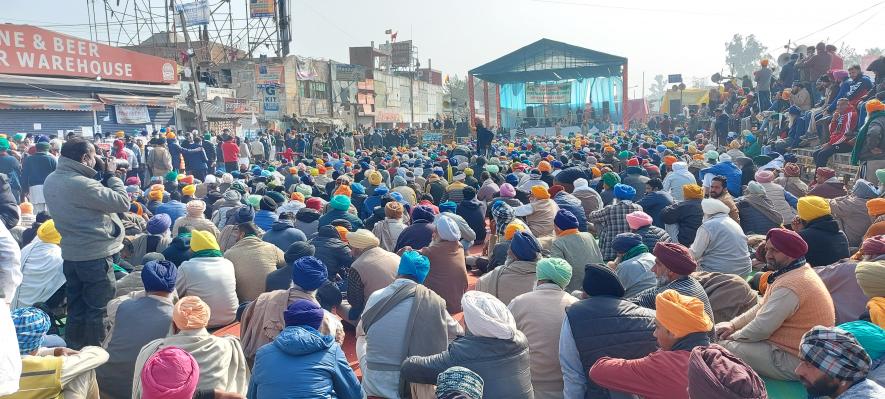
The government wants to junk public distribution system following the Shanta Kumar report of 2015, which says that the Food Corporation of India (FCI) should be abolished, according to him.
The Bharatiya Kisan Union (BKU), too, has junked PM Modi’s claim that it has implemented Swaminathan’s recommendation on MSP.
“Farmers of Bundelkhand in Uttar Pradesh are not getting the MSP of pulses and are forced to kill themselves. The claim of the implementation of the commission report is totally false. The Union government has not assured farmers that they will get the MSP of their produce, and there is no provision for it in the agricultural laws passed by the Centre recently,” said BKU leader Rakesh Tikait.
He said farmers do not want an aid of Rs 500 per month being given by the Centre but demand the minimum support price for their produce, adding, “Farmers are not beggars.”
‘CENTRAL SUBSIDY NOT FOR FARMERS, BUT FOR SUGAR MILLS’
With regard to the Central government’s Cabinet Committee’s decision of December 16 wherein a “subsidy” of Rs 3,500 crore has been approved for sugar farmers, Tikait alleged the government is helping sugar mill owners by giving them “export subsidy” by which arrears of sugarcane growers will be paid.
“The government is helping sugar mills owners here as well in the name of farmers who will not get any benefit from it except the fact that they will only get their dues,” he said.
Also read: ‘Borrowing to Feed my Family’: Govt. Dues to Sugarcane Farmers in UP Still Unpaid
Union Minister Prakash Javadekar had said the Cabinet Committee on Economic Affairs (CCEA) has approved a subsidy of Rs 3,500 crore on exports of 60 lakh tonnes of sweetener and the subsidy amount will directly be given to farmers.
The minister had also that both “sugar industry as well as sugarcane farmers are in crisis” because of high domestic production at 310 lakh tonnes as against the annual demand of 260 lakh tonnes. He said 60 lakh tonnes of sugar will be exported during the ongoing marketing year 2020-21 as part of its efforts to help them clear outstanding dues to sugarcane farmers.
“Farmers sell their sugarcane to the sugar mills, however, they are not getting their dues from the sugar mill owners as they have surplus sugar stock. To address this concern, the government is facilitating the evacuation of surplus sugar stock. This will enable payment of dues of the sugarcane farmers. The government will incur about Rs 3,500 crore for this purpose, and this assistance would be directly credited into farmers’ accounts on behalf of sugar mills against cane price dues and subsequent balance, if any, would be credited to mill’s account,” the CCEA statement said.
Get the latest reports & analysis with people's perspective on Protests, movements & deep analytical videos, discussions of the current affairs in your Telegram app. Subscribe to NewsClick's Telegram channel & get Real-Time updates on stories, as they get published on our website.











